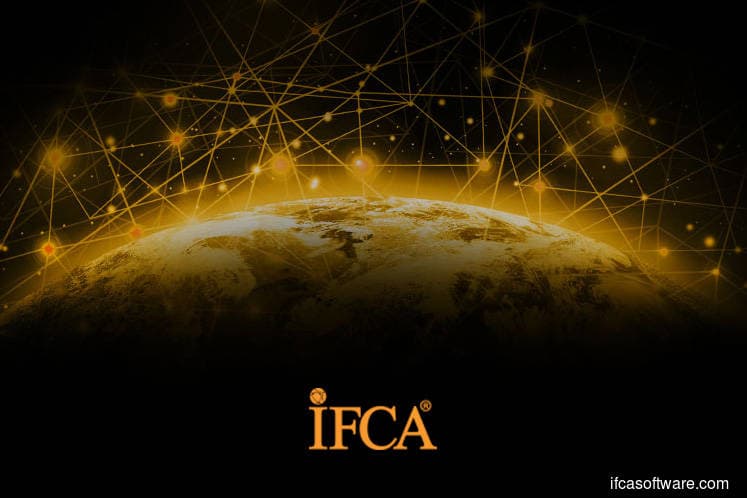
This article first appeared in The Edge Financial Daily on May 28, 2018
KUALA LUMPUR: IFCA MSC Bhd is poised for a busy year as the business software solution company is seen to be a beneficiary of the Pakatan Harapan government’s plan to abolish the goods and services tax (GST) and bring back the sales and services tax (SST).
Any changes to the tax code will keep IFCA busy updating the accounting systems of business operators, its chief executive officer (CEO) Michael Cho Ngai Ming said, something that it experienced two years ago when the GST was implemented.
IFCA had a bumper year in the financial year ended Dec 31, 2015 (FY15), posting record net profit and revenue of RM21.6 million and RM101.62 million respectively.
Back then, IFCA was an investor favourite, with its share price hitting an all-time high of RM1.77 on May 18, 2015, giving it a market capitalisation of RM1.01 billion and making it the world’s top-performing software company that year.
However, its net profit has fallen since then to RM518,000 and RM9.67 million in FY16 and FY17 respectively after the GST euphoria subsided and due to weak domestic property market conditions. IFCA shares dropped to close at 28.5 sen last Friday, with its market cap standing at RM173.15 million.
“We are in the business of providing automation and accounting software [services], so it is very likely there will be positive impact (on IFCA as a result of the switch from GST to SST),” he told The Edge Financial Daily after the group’s annual general meeting last week.
The 43-year-old Cho, who joined IFCA as deputy CEO on March 27 last year and took the reins as CEO on Jan 19, however, said that the stellar performance seen in FY15 is unlikely to be repeated in FY18 as the conversion of existing GST module to SST is limited in job scope compared with when the GST was implemented.
“SST is only [targeted] for importers and manufacturers, [while] GST is a broad-based consumption tax, affecting all consumers,” he added.
Nevertheless, Cho expects the group to benefit from the government’s move to zero-rate GST from 6% effective June and once again from the transition to SST from GST.
Cho said it is too early to estimate the possible earnings of the switch to SST except that IFCA is expecting an improved FY18 performance against the previous year’s. It is set to release its 1QFY18 financial results this week.
The group has an internal top line growth target of between 10% and 25% this year, driven by its overseas revenue.
The export market accounted for 49% (RM43.2 million) of the group’s revenue of RM88.83 million in FY17, but Cho hopes to increase the contribution to 55% this year, with focus on Asean and China.
Cho pointed out that as a result of the group’s internationalisation and revenue diversification strategy in recent years, the group is no longer dependent on domestic contract wins.
“Thus, whatever changes in Malaysia is not going to ‘rock’ our stable source of income from China and Indonesia,” he said.
Last year, IFCA saw positive activities in the Asean region with significant contract wins in Myanmar, as well as Vietnam.
“The whole overseas expansion idea is based on Asean and China being developing nations, with a combined population of nearly two billion people,” according to Cho.
“Going forward, our focus will be [on Indochina]. Today, we have been established in Malaysia for over 30 years and China for 15 years. In our business, we support the entire property industry, so it takes time [to build]. Once we enter a market, we want to leverage it and keep on growing,” he said.
“We want to establish ourselves as the Asean powerhouse in property development and management within the next 10 years,” he added.
Cho noted that the group is no longer just focusing on GST software upgrade, but it has diversified its portfolio to provide software solution for the property, construction and hospitality sectors.
Cho also said IFCA is on the lookout for acquisitions. “We are ready to make an acquisition anytime as long as it would complement our business. As IFCA is a listed company and is in a net cash position, it gives us a lot of options to create this kind of partnership, as well as expand into new markets,” he said.
With total borrowings of RM683,216 and cash reserves of RM73.23 million, IFCA had a net cash of RM72.55 million as at Dec 31, 2017.
IFCA’s share price has fallen 32% over the past year. At last Friday’s closing price, IFCA was trading at a price-earnings multiple of 17.17 times.